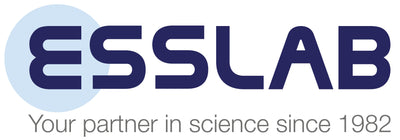More laboratories are beginning to realize how important the use of quality standards are to the accuracy of their tests. Accreditation to ISO standards provides the reference material consumer with the mark of a manufacturer's quality. In the interview that follows, Warren Merkel, Technical Manager of A2LA1, provides some insights on how you can become a more informed consumer and why accreditation is so important.
Inorganic Ventures (IV): Why is accreditation so important for laboratories?
Warren Merkel (WM): Basically, it provides a third party endorsement of the competence of the laboratory. This endorsement adds confidence to test results that are generated and it gives the consumer the additional assurance that somebody has come through and evaluated their processes and methods for performing tests. Furthermore, it validates that laboratories are in keeping with national and international practices.
Scope of Accreditation
IV: What should consumers request from their manufacturers to be sure that the manufacturer is fully accredited?
WM: We always recommend that companies request a copy of the Scope of Accreditation because that has the specific details of what the accreditation covers. The certificate is normally just a document with a seal and the terms of the accreditation, but it does not provide specific details.
IV: Do different companies that apply for the same accreditation receive different scopes?
WM: That's one of the things that's different about laboratory accreditation. Each laboratory's scope defines different tests or calibrations that they're accredited for. So unlike ISO 9000 registration, which is generic in scope based on industry categories, ISO 17025 laboratory accreditation is extremely specific and that necessitates the accreditation process [to determine the scope].
IV: Some manufacturers have advertised that they are they are ISO 17025 accredited while their laboratory is still in the review process. Is advertising a pending accreditation dangerous to the consumer?
WM: This is not only dangerous, but it's in conflict with the requirements of the accrediting body. We have controls over the use of our accreditation mark, as well as any reference to accredited status. Those types of requirements forbid a laboratory to make any reference to their accredited status until it has been completely granted. However, a laboratory can make reference to the fact that they're in the process of obtaining accreditation.
Until the accreditation is actually granted, there are any number of things that could happen that could change the outcome of the [accreditation] process. Unless the claims [of the advertisment] are specific, including the accrediting body and the scope of accreditation, then the consumer would have no real confidence in the accreditation and whether it has any validity.
IV: Is it smarter for the consumer to purchase from a manufacturer that is already accredited versus a manufacturer whose accreditation is pending?
WM: If there are suppliers out there that are known to be accredited, it would certainly be less of a risk to use someone who you know to have an established accepted accreditation versus someone who is somewhere in the process.
IV: Many companies and organizations are required to purchase only from similarly accredited manufacturers. When a consumer is ISO 17025 accredited, are there checks and/or procedures that ensure that they will be purchasing from an appropriately accredited manufacturer?
WM: ISO 17025 is very specific as to the information that must be provided in order to purchase products or services. They are required to have procedures in place to ensure there's a technical review of any purchases that they do. If it's a purchase for any types of products that affect the quality of the test, especially reference materials, they must be traceable to the appropriate national and international standards. Also, they must come from an organization that has been deemed competent to provide these products.
There are also requirements that ISO 9000 registered companies use appropriately qualified suppliers, but ISO 9000 doesn't demand the same level of detail as [17025].
IV: How much information can a consumer receive upon request from an accrediting body (such as A2LA) regarding an accredited manufacturer's quality record?
WM: Absolutely none without the permission of the manufacturer. We are required by ISO Guide 58 that this information remain confidential. However, we can release the [manufactuerer's] scope of accreditation, as well as any information about the status of their accreditation -- for example, if they've been suspended or if their accreditation has been revoked for any reason.
1. A2LA is one of four U.S. organizations that are capable of accrediting laboratories so that their procedures and methods meet international standards.
My Wishlist
Wishlist is empty.
